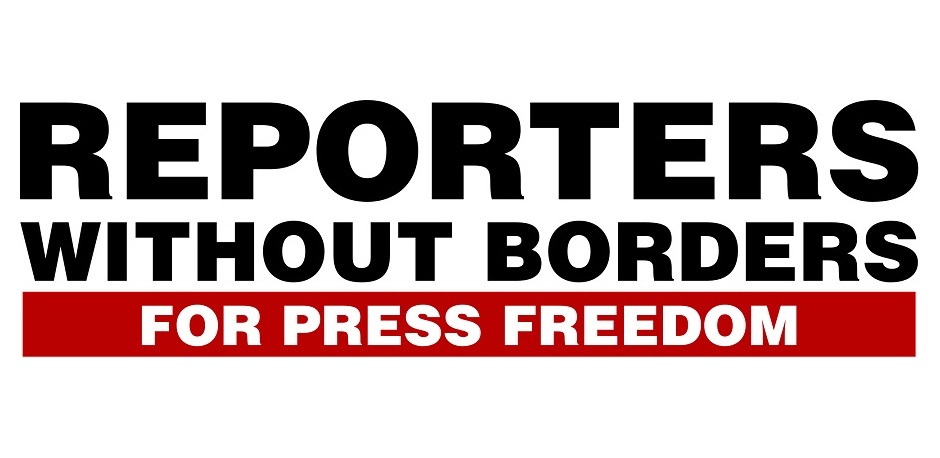BELGRADE, 27.09.2018. – The safety of journalists is one of the fundamental prerequisites for the unobstructed exercise of the right to freedom of expression.
All relevant Serbian and international reports note a decline in the level of safety of journalists in Serbia, while suggesting to the Serbian authorities to publicly condemn hate speech and attacks on journalists, and to create guidelines that clearly define criminal offenses and other types of misdemeanors. Relying on the findings of the reports and analyses conducted in the previous period, the IJAS has put together recommendations and amendments aimed at improving the position of journalists where the right to safe and unobstructed work is concerned. The recommendations and amendments primarily pertain to amendments to the following laws: the Criminal Code, Criminal Procedure Code and the Constitution of the Republic of Serbia.
- Enhancement of the Legal Framework
For the legal framework pertaining to journalists’ safety to be enhanced, certain amendments to legal regulations need to be made. The recommendations provided for the amendment and supplementation of legal provisions can be divided into three groups: the first pertains to supplements to the Criminal Code, the second to supplements to the Criminal Procedure Code, and the third pertains to constitutional amendments as regards improvement of independence of the judiciary as the central body of criminal procedure, as well as amendments to the laws regulating the position of the prosecution.
Recommendations for Supplements to the Criminal Code
According to the IJAS database, the last few years have seen a trend of increased pressure on journalists and other media professionals relative to verbal threats and physical assault. In 2017 the number of registered cases of pressure was 62, whereas this year 49 cases of pressure have already been documented.[1] These cases almost always remain unpunished because they are not considered criminal offenses, i.e. those incidents do not contain elements of a criminal offense. Some of those pressures, such as demands to remove footage or a photograph, demands for expulsion from a session or ban on presence of certain teams of reporters, the confiscation of a large number of newspaper copies, as well as the removal of news items or the prevention of broadcasting a show “on orders from the top,” and even cases of long-lasting smear campaigns where the “targets of pressure” are often journalists who report critically on the authorities, are eligible for classification under the criminal offense Violation of Freedom of Speech and Public Appearance in Article 148 of the CC.[2] First of all, a special analysis should be conducted regarding the practical reach of legal protection related to the criminal offense Violation of Freedom of Speech and Public Appearance, and whether amendments to this article need to specify what falls under the actions of “limiting” and “denying” freedom of speech and public appearance. The name and legal marks of the criminal offense also need to be aligned with Article 10 of the European Convention on Human Rights and Fundamental Freedoms and the offense should be named Violation of the Right to Freedom of Opinion and Expression. The introduction of a new, defined form of this criminal offense is also proposed, which would envisage special incrimination in cases where the limiting and endangerment of freedom of expression pertains to a journalist.
There are also frequent cases where journalists perceive certain situations and events as threats, however, those cases are not considered direct threats in the sense of the criminal offense Endangerment of Safety in Article 138 of the Criminal Code, but rather can be classified as a different criminal offense. Some of those events, primarily in situations where journalists feel persecuted via social networks and other forms of electronic communication, can be classified as the criminal offense Persecution, thus the introduction of a qualified form of that criminal offense is proposed, when it is committed against an individual performing work of public importance in the area of information, for which a more severe penalty may be foreseen.
With the development of modern means of communication, possibilities of unauthorized interception of communications and access to so-called stored communications could, to a significant extent, lead to the revealing of a journalistic source. That is a big problem because it calls into question the protection of anonymity of a source. We’ve had cases of certain journalists being followed and recorded, such as the female journalists of the Center for Investigative Journalism of Serbia (CINS).[3] There was also the case of Stevan Dojcinovic – when the Crime and Corruption Reporting Network (KRIK) started investigating the property of then-prime minister Aleksandar Vucic, the Informer newspaper published numerous pieces of information from Dojcinovic’s professional and personal life, which Dojcinovic later found out had been provided by an intelligence agency.[4] The recommendations propose that the introduction of new forms of criminal offenses be considered, in situations where the offenses are committed against journalists (i.e. against individuals performing work of public importance in the area of information) for the purpose of both protecting the journalist and ensuring the legal protection of a journalistic source, whose secrecy ought to be secured. This particularly pertains to the following criminal offenses: Violation of the Secrecy of Letters and Other Shipments, Unauthorized Wiretapping and Recording, Unauthorized Photographing, Unauthorized Publication and Presentation of Another’s Texts, Portraits and Recordings, Unauthorized Collection of Personal Data, Violation of the Freedom of Speech and Public Appearance, Prevention of Printing and Dissemination of Print Material and Program Broadcasting, Computer Sabotage, Unauthorized Access to a Protected Computer, Racial and Other Discrimination.
As for physical assault on journalists, situations where minor injuries are inflicted on journalists are more frequent in practice. The recommendations propose consideration of the possibility for the criminal offense Minor Physical Injury to also recognize the special position of a journalist as a protected entity and to introduce a special form of that offense.
Recommendations Pertaining to Amendments to the Criminal Procedure Code Relative to Certain Procedural Rules
The investigations and procedures carried out following attacks on journalists are largely not carried out quickly and efficiently, often without a court epilogue. There are cases that are handled quickly and efficiently, but they seem to be rare. There are many unsolved cases: in the period from September 1, 2017 to September 1, 2018, 21 out of the total 28 cases were not solved. An even bigger problem is the fact that there is a very large number of cases where several years have passed since their happening, while the procedures for their solving are only in the pre-investigation stages.
In order to improve the legal protection of journalists and to carry out procedures faster and more efficiently, certain amendments and supplements to the Criminal Procedure Code need to be made.
With the aim of ensuring more efficient action by prosecutors, deadlines (even general ones) for the actions of competent prosecutors’ offices in the preliminary criminal investigation phase need to be set, which, relative to the issue of protecting the safety of journalists, can also be done through the provision of mandatory instructions by the Public Prosecutor’s Office to the prosecutors’ offices, without the necessity of changing the legal framework. The possibility of similar deadlines being set for police actions should also be considered.
For the purpose of establishing more effective legal protection, the possibility of judicial control of the legality of dismissing criminal charges should be considered, i.e. an effective instrument should be provided for situations where a second-instance prosecutor’s office has rejected a complaint against the decision on dismissing criminal charges. The introduction of judicial control of decisions of the competent public prosecutor should also be considered in cases where criminal prosecution has been postponed, i.e. where criminal charges have been dismissed (cases in Article 284, paragraph 3 of the Criminal Procedure Code), i.e. the injured party should be provided with a legal remedy in such situations.
With the aim of contributing to the equalization of the procedural position of the injured party as a private plaintiff and the public prosecutor, review the possibility of police assistance to journalists as the injured parties in cases of incidents pertaining to them, when there is no possibility of criminal prosecution ex officio, i.e. where criminal offenses prosecuted through private criminal charges are concerned. They are the following: Violation of the Secrecy of Letters and Other Shipments, Unauthorized Wiretapping and Recording, Unauthorized Photographing and other criminal offenses.
Constitutional amendments concerning improvement of independence of the judiciary as the central body of the criminal procedure, as well as amendments to the laws regulating the position of the prosecution.
The recommendation goes beyond the matter of journalists’ safety and pertains to a greater degree of autonomy of the public prosecution. The gradual reduction of systemic possibilities of other branches of government (primarily the executive) on the actions or non-actions of public prosecutors’ offices is necessary. For that to happen, the constitutional and legal framework needs to be changed, along with the laws regulating the position of public prosecutors’ offices. In that sense, the Republic of Serbia, as a member of the Council of Europe, should implement all the recommendations made by the European Commission for Democracy through Law (also known as the Venice Commission) so far.
- Education and Encouragement of Journalists to Report Cases
Besides amendments and supplements to legal regulations, achieving the main objective – creation of a favorable environment for the unobstructed work of journalists and other media professionals – requires journalists (the injured parties) themselves to be incited to utilize all legal instruments prescribed by law. They should be encouraged to file criminal charges, complaints directly to a higher prosecutor, to undertake criminal prosecution in situations where a public prosecutor has given up in the post-charging stage, and to file private charges (for applicable criminal offenses). Also, where possible, journalists as the injured parties should be encouraged to initiate misdemeanor proceedings in situations where the conditions for criminal prosecution have not been met. In certain situations, the injured parties (journalists) can also get “satisfaction” by leading civil lawsuits for damages, regarding events that may induce a subjective feeling of endangerment or which may be treated as a different form of pressure, but lack legal or misdemeanor relevance.
In parallel with encouraging journalists to report cases to the competent bodies, the injured parties should be educated about the manner of reporting incidents and the content of specific reports. Pro bono legal assistance programs should be provided, which would give journalists (as the injured parties) appropriate legal aid in putting together their reports.
[1] Source: www.bazenuns.rs
[2] Organization for Security and Co-operation in Europe, Mission to Serbia, Analysis of the Efficiency of Legal Protection Measures for Journalists in Serbia, Belgrade, 2018
[3] Source: http://www.bazenuns.rs/srpski/detalji-napada-na-novinara/496
[4] Source: https://www.krik.rs/urednik-krik-a-tuzio-vucicevica-i-informer/








